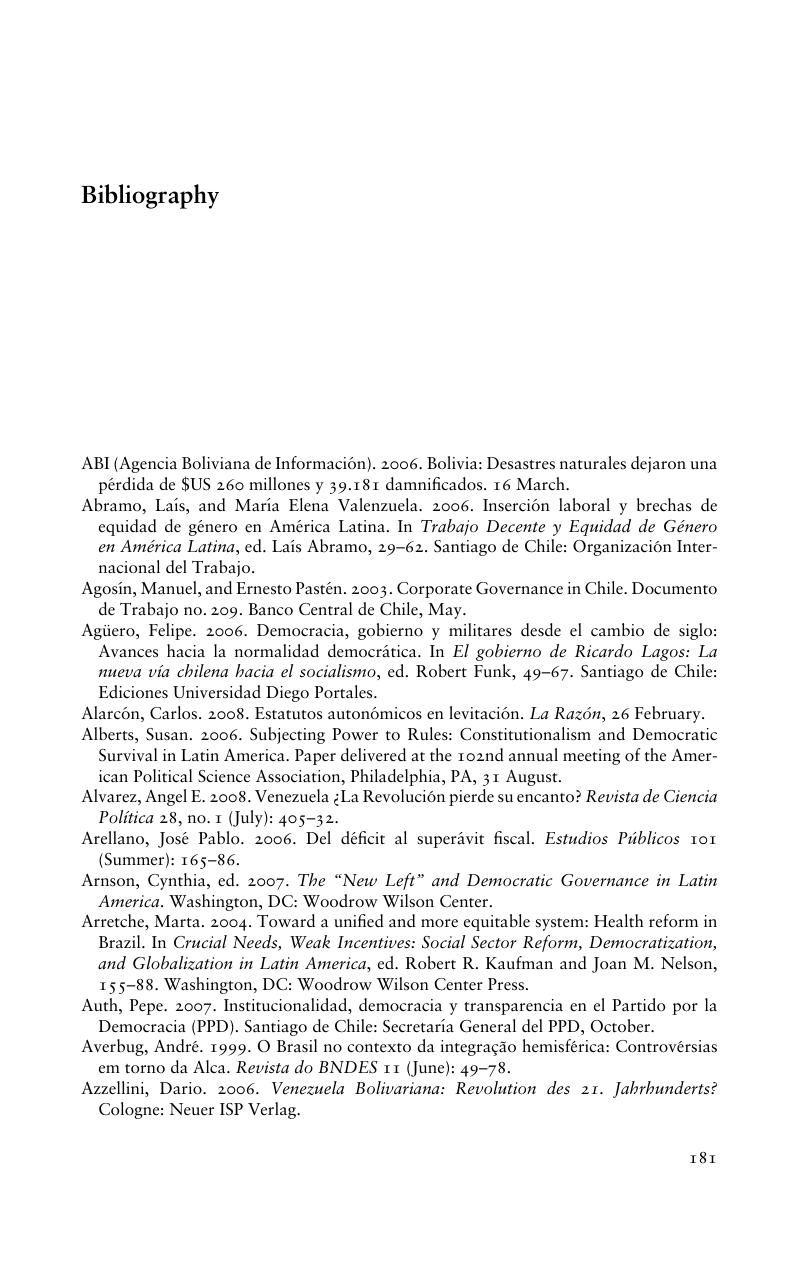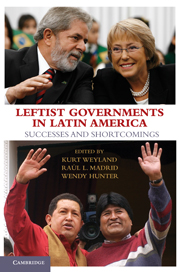Book contents
- Frontmatter
- Contents
- Acknowledgments
- Acronyms and Abbreviations
- Contributors
- 1 The Performance of Leftist Governments in Latin America: Conceptual and Theoretical Issues
- 2 The Repeating Revolution: Chávez's New Politics and Old Economics
- 3 The Challenge of Progressive Change under Evo Morales
- 4 The Chilean Left in Power: Achievements, Failures, and Omissions
- 5 From Cardoso to Lula: The Triumph of Pragmatism in Brazil
- 6 Lula's Administration at a Crossroads: The Difficult Combination of Stability and Development in Brazil
- 7 The Policies and Performance of the Contestatory and Moderate Left
- Bibliography
- Index
- References
Bibliography
Published online by Cambridge University Press: 05 June 2012
- Frontmatter
- Contents
- Acknowledgments
- Acronyms and Abbreviations
- Contributors
- 1 The Performance of Leftist Governments in Latin America: Conceptual and Theoretical Issues
- 2 The Repeating Revolution: Chávez's New Politics and Old Economics
- 3 The Challenge of Progressive Change under Evo Morales
- 4 The Chilean Left in Power: Achievements, Failures, and Omissions
- 5 From Cardoso to Lula: The Triumph of Pragmatism in Brazil
- 6 Lula's Administration at a Crossroads: The Difficult Combination of Stability and Development in Brazil
- 7 The Policies and Performance of the Contestatory and Moderate Left
- Bibliography
- Index
- References
Summary

- Type
- Chapter
- Information
- Leftist Governments in Latin AmericaSuccesses and Shortcomings, pp. 181 - 200Publisher: Cambridge University PressPrint publication year: 2010

